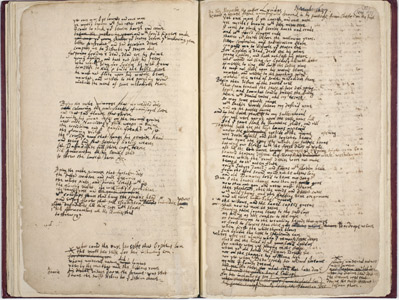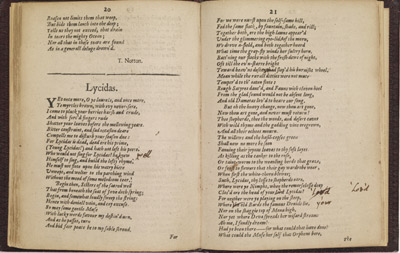Touchstones and Cherry-stones: the Shorter Poems
Paradise lost has somewhat overshadowed Milton’s shorter poems. Samuel Johnson, concurring with Hannah More’s disparagement of the sonnets, remarked that Milton was ‘a genius that could cut a Colossus from a rock but could not carve heads upon cherry-stones’; Wordsworth believed the minor poems had been ‘utterly neglected’, despite their having had Paradise lost to draw attention to them; and William Hazlitt wrote of their excellence being ‘proportionable’ to their smaller size when contrasted with the great epic. Yet the merit of many of the shorter works has long been recognised, and Tennyson regarded ‘Lycidas’ as a ‘touchstone of poetic Taste’.
Illustration of the minor poems reflected their relative disregard; Marcia Pointon has suggested they appealed to ‘weaker artists’ who ‘possibly saw them as less of a challenge than Paradise Lost.’ William Blake and Samuel Palmer were important exceptions, and early twentieth-century fine-press book production generated numerous distinguished illustrations, many focusing on the erotic associations of the poems.
 |
Part of Milton’s autograph draft of ‘Lycidas’. Trinity College, Cambridge, MS R.3.4. By kind permission of the Master and Fellows of Trinity College, Cambridge. |
 |
Corrections to the first printing of ‘Lycidas’ (Cambridge, 1638), thought to be in Milton’s hand. Adv.d.38.5 |
 |
A translation of ‘Lycidas’ into Greek by John Plumptre (Cambridge, 1797). S721.b.77.39 |
|



